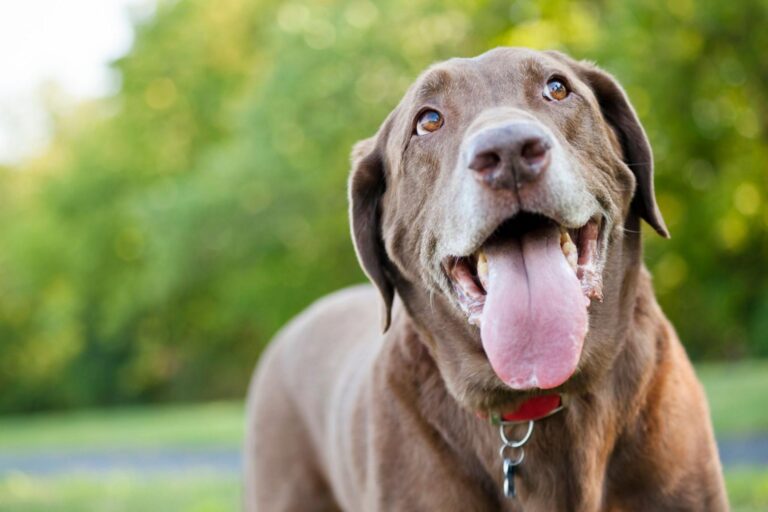
Improving your dog’s gut health is essential for their overall well-being. A balanced diet, rich in quality ingredients, plays a vital role in supporting a happy digestive system. But there’s more to it than just food. Have you considered how probiotics, hydration, and even exercise contribute to your dog’s gut health? Understanding these factors can make a significant difference in your pet’s life, so let’s explore how to create the best environment for their digestive health.
Understanding Your Dog’s Digestive System
Your dog’s digestive system is a fascinating network designed to process food efficiently and keep them healthy.
It starts in the mouth, where chewing and saliva begin breaking down food. Then, it travels down the esophagus to the stomach, where strong acids further digest it.
From there, food moves into the small intestine, where nutrients are absorbed into the bloodstream. The pancreas and liver aid in this process by producing enzymes and bile.
Afterward, the remaining waste enters the large intestine, where water is reabsorbed, and the waste is formed into stool. Maintaining a healthy gut is crucial for your dog’s overall well-being and may be supported by products with a proprietary blend of healthy gut bacteria.
Understanding this system helps you recognize how important it’s to maintain a healthy gut, ensuring your furry friend feels their best and stays active!
Importance of a Balanced Diet
A balanced diet is essential for maintaining your dog’s gut health, as it directly impacts their overall well-being. When you provide a variety of nutrients, including proteins, fats, carbohydrates, vitamins, and minerals, you’re helping to keep their digestive system running smoothly.
An appropriate balance of food not only fuels your dog’s energy but also supports healthy gut bacteria, which play a vital role in digestion.
Avoid overfeeding or relying solely on commercial dog foods high in fillers. Instead, focus on quality ingredients and consider incorporating fresh fruits and vegetables.
Your dog’s gut thrives on diversity, so mix it up! By prioritizing a balanced diet, you’re setting the stage for a happy, healthy pup with a robust digestive system.
Probiotics and Prebiotics: The Power Duo
When it comes to enhancing your dog’s gut health, incorporating probiotics and prebiotics can make a significant difference.
Probiotics are beneficial bacteria that help balance your dog’s gut flora, promoting healthy digestion and reducing issues like diarrhea. You’ll find them in fermented foods or as supplements specifically designed for dogs.
On the other hand, prebiotics serve as food for these good bacteria, encouraging their growth. They’re often found in fibers like chicory root or beet pulp.
By providing both, you create a thriving environment for beneficial microbes. This power duo not only supports digestion but can also boost your dog’s immune system.
Hydration and Its Role in Digestion
While many pet owners focus on food to improve their dog’s gut health, hydration plays an essential role in digestion too.
Water helps break down food, allowing nutrients to be absorbed more efficiently. A well-hydrated dog can better manage their digestive processes, reducing the risk of constipation and diarrhea.
It’s vital to provide fresh, clean water daily and encourage your dog to drink, especially during warmer months or after exercise. You might also consider adding wet food to their diet for an extra hydration boost.
Remember, a hydrated dog is a happy dog, and good hydration can lead to a healthier gut, ultimately making your furry friend feel their best.
Keep that water bowl full!
Exercise and Its Impact on Gut Health
Regular exercise greatly influences your dog’s gut health, so incorporating physical activity into their routine can make a world of difference.
When your pup gets moving, their digestive system benefits from increased blood flow, which helps food break down more efficiently. Plus, regular activity can prevent obesity, a major contributor to digestive issues.
Taking your dog for daily walks or engaging in playtime not only keeps them fit but also stimulates gut motility—ensuring everything moves smoothly through their intestines.
Aim for at least 30 minutes of exercise each day, mixing in activities that excite them. You’ll notice a happier, healthier dog, and a more balanced digestive system.
Recognizing Signs of Digestive Issues
Many dog owners mightn’t realize that subtle changes in their pet’s behavior can signal digestive issues.
If your dog suddenly becomes less interested in food, it might indicate discomfort or a problem in their gut. Watch for signs like excessive gas, bloating, or diarrhea, as these can be red flags.
You should also pay attention to changes in their stool consistency; healthy poop should be firm and well-formed. If your pup is vomiting frequently or straining to go outside, it’s time to take notice.
Behavioral changes, like increased irritability or lethargy, can also suggest digestive distress. Trust your instincts—if something seems off, it’s worth investigating to guarantee your furry friend stays happy and healthy!
Regular Veterinary Check-ups for Optimal Health
To guarantee your dog stays in top shape, scheduling regular veterinary check-ups is essential.
These visits allow your vet to monitor your dog’s overall health, including their digestive system. They can catch potential issues early, ensuring your pup gets the necessary treatment before problems escalate.
During these check-ups, your vet will also provide tailored advice on nutrition, exercise, and preventive care, all of which contribute to better gut health.
Plus, you’ll have the chance to ask questions and discuss any changes you’ve noticed in your dog’s behavior or digestion.






